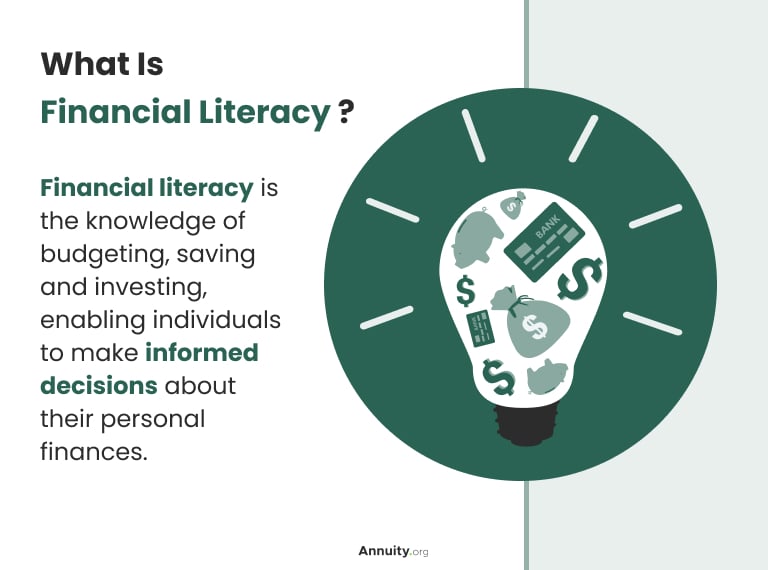Explore web search results related to this domain.
A guide for financial literacy tools and resources. ... Investing allows individuals to grow their money and receive long-term financial security. However, investing also carries risks as well, as you can lose money depending on the type of investment and changing economic and market conditions.
The Savings Bonds Growth Calculator is provided by TreasuryDirect, and allows users to calculate the future value of their money if they invest in U.S. Savings Bonds. ... What’s the best way to save for retirement and how much should you be saving for the future? What’s the difference between Roth and traditional IRA? Should you buy an annuity? These questions and more are answered here in a way that can help you make a plan for your financial future so you can retire when you’re ready.FINRA guide on 401(k) Basics, and additional information on contributions, managing your 401(k), rollovers, and more. ... This calculator can help you estimate how much to save each year to accumulate enough money for your projected retirement. Provided by Financial Industry Regulatory Authority (FINRA).Use this calculator to determine if you are on track to ‘save the max’ in your 401(k). Provided by Financial Industry Regulatory Authority (FINRA) 401(k) and IRA Required Minimum Distribution Calculator (FINRA) Use this calculator to determine your Required Minimum Distribution (RMD) from a traditional 401(k) or IRA. In general, your age and account value determine the amount you must withdraw. Provided by Financial Industry Regulatory Authority (FINRA)Bonds: "A bond is an investment representing a loan made by an investor to a borrower — typically a business or government entity. The borrower promises the debt will be paid back with interest at a specific time. Bonds are typically issued by companies, municipalities, states, and sovereign governments to finance projects and operations.
Core concepts to help build sound financial management skills in youth. ... In general, there are four main uses for money: spending, saving, investing and giving away.
Detailed plan A comprehensive wealth plan, also referred to as a financial plan, which helps guide individuals towards achieving more complex financial goals throughout their lifetimes and beyond. ... Your stage of life will greatly impact your financial picture now and in the future, and the financial and investment decisions you make. In general, there are three main wealth stages that individuals move through and between over the course of life: Early savers—Establishing career, perhaps buying a home, getting married or starting a family Main objectives: Earning, saving and growing assetsCore concepts to help build sound financial management skills in youth. ... In general, there are four main uses for money: spending, saving, investing and giving away.Identifying your short- and long-term financial goals will help determine which types of investments and planning approaches may be most suitable and effective to help you save for your needs.To help prioritize savings in your budget, consider setting aside a specific amount on a regular basis, such as through a pre-authorized contribution plan where funds are taken from your account on set days and deposited in an investment vehicle or savings plan. In creating a budget, it’s important to include and track: income, savings goals, fixed expenses and flexible expenses (needed and wanted). For a budget to be most effective, it’s important to factor in all lifestyle expenses and other financial components, and ensure they’re logged appropriately.


These books cover everything a beginner needs, from the basics of personal finance and investing to how the markets influence our money decisions.
These books cover everything a beginner needs, from the basics of personal finance and investing to how the markets influence our money decisions. ... If you’ve selected any of the answers above, you’re not alone. Taking the first step toward financial literacy is the hardest.Christine Benz, Morningstar’s director of personal finance and retirement planning, breaks financial planning down into bite-size chunks that anyone can handle. You start with basics like assessing your net worth and creating an organization system, and you progressively conquer more advanced topics including retirement investing, college savings, and estate planning. If you want to meld investment basics with tangible advice, this book is a great option. Read more: Our Best Investment Portfolio Examples for Savers and RetireesThe text is accessible and shorter than many other investing books, and it includes quotes from many prominent financial figures who support Bogle’s claims. 2) The Bogleheads’ Guide to Investing, by Taylor Larimore, Mel Lindauer, and Michael LeBoeufThe advice of The Vanguard Group founder John Bogle is echoed in this comprehensive guide for investors of all experience levels. Packaged into 23 short, lighthearted chapters, this book contains practical advice and explores many aspects of investing, from how to choose the financial lifestyle that fits you to how to balance your emotions to truly master your investments.

There’s no shortage of get-rich-quick schemes, from buying into the latest crypto coin or flipping a huge portfolio of investment properties. However, don’t be fooled by promises of easy wealth—there is no such thing as a sure-fire, guaranteed return on investment and the vast majority ...
There’s no shortage of get-rich-quick schemes, from buying into the latest crypto coin or flipping a huge portfolio of investment properties. However, don’t be fooled by promises of easy wealth—there is no such thing as a sure-fire, guaranteed return on investment and the vast majority of AustraIf you steer clear of get-rich-quick schemes, and invest for the long-term, it's possible to build a healthy nest egg.While we may highlight certain positives of a financial product or asset class, there is no guarantee that readers will benefit from the product or investment approach and may, in fact, make a loss if they acquire the product or adopt the approach.To the extent any recommendations or statements of opinion or fact made in a story may constitute financial advice, they constitute general information and not personal financial advice in any form. As such, any recommendations or statements do not take into account the financial circumstances, investment objectives, tax implications, or any specific requirements of readers.

Over the course of three years, students take courses on saving money, building wealth and budgeting, setting them up to achieve economic mobility and success.
Further, students who have completed a financial literacy course have better average credit scores and lower debt delinquency rates as young adults, according to data from the Financial Industry Regulatory Authority's Investor Education Foundation, which promotes financial education.Among adults, those with greater financial literacy find it easier to make ends meet in a typical month, are more likely to make loan payments in full and on time and less likely to be constrained by debt or be considered financially fragile. They are also more likely to save and plan for retirement, according to data from the TIAA Institute-GFLEC Personal Finance Index based on research collected annually since 2017.As of 2024, about half of all states require or are in the process of requiring high school students to take at least one financial literacy course before they graduate, according to the latest data from Next Gen Personal Finance, a nonprofit focused on providing financial education to middle and high school students.Many studies show there is a strong connection between financial literacy and financial well-being.
There’s plenty to learn about personal financial topics, but breaking them down can help simplify things. To start expanding your financial literacy, consider these five areas: budgeting, building and improving credit, saving, borrowing and repaying debt, and investing.
Financial literacy helps you make smarter financial decisions. Learn about the five core concepts.Becoming more financially literate might make financial decisions related to loans, major purchases and investments less daunting. There’s no shortage of places to learn more about finances, but it’s important to learn from trustworthy sources. Join the millions using CreditWise from Capital One. ... Financial literacy is about understanding concepts like budgeting, building and improving credit, saving, borrowing and repaying debt, and investing—and having the ability to apply them to real-life situations.There’s plenty to learn about personal financial topics, but breaking them down can help simplify things. To start expanding your financial literacy, consider these five areas: budgeting, building and improving credit, saving, borrowing and repaying debt, and investing.And there are different levels of risk and return, depending on the investment. By becoming financially literate, you’ll be better able to make important financial decisions while understanding how those decisions will impact your current and future financial situation. This can help you reach your goals, build your savings, manage your money and avoid or navigate potential setbacks that could take a toll on your finances. Now that you understand why financial literacy matters, it may be helpful to see how financial literacy can directly benefit you:


Discover the best personal finance books to read in 2025. We have books about budgeting and investing so you can learn about personal finance.
For example, the best books on investing can help you learn the difference between a Roth IRA and Traditional IRA, as well as how to invest in the stock market. Personal finance books for budgeting can teach you different budgeting strategies like the pay-yourself-first method or the 50/30/20 rule so you can learn to manage spending and save money over time.If you've ever wondered how your financial advisor, a venture capitalist, or that money expert on the internet invests their money, Brian Portnoy and Joshua Brown have answers. With pithy stories from 25 financial experts, this book advances on basic personal finance topics, giving readers ideas to implement as they take the next steps on their financial journeys. It's not the best choice for anyone who's new to managing money, as it lacks enough explanation of the basics to be a stand-alone guide.It's important to build your own relationship with money rather than following set rules and guidelines. Elise shares moments from her own journey to show readers how they can adjust their mindset. ... A great book for beginners, "The Financial Diet" lays a groundwork for anyone wanting to learn more about money and life. Best for young adults, Fagan dives into starting to invest and saving for retirement, as well as budgeting and debt repayment plans.In "Finance for the People," former financial planner Paco de Leon explains how to take personal responsibility for our personal finances despite inequities out of our control, while providing the necessary tools to help you build a strong financial foundation. ... "Broke Millennial" took the world by storm with great budgeting tips written specifically for avocado-toast-brunching millennials. Erin Lowry is back at it again with a practical, easy-to-read guide to investing.
We look at the next generation of investors and how their investing preferences and habits differ from previous generations. Read more -> Exclusive content, detailed data sets, and best-in-class trade insights to rewrite your portfolio for tomorrow. Try it Now · The Value of Financial Literacy ...
Financial literacy (or lack thereof) can make a difference of $10,000+ Ignorance can be bliss, but when it comes to personal finance, it can also end up costing you a lot of money. Learn more -> ... The goal of this guide is to break down the basics of investing so that we can begin investing with confidence.We explore the key steps to attaining financial literacy and ways to improve your investing knowledge.Generation Z is a growing force in the markets, transforming the traditional nature of investing. Learn how Gen Zers are flexing their financial muscles. ... Vivian Tu, also known as @yourrichbff on TikTok, talked about helping those in marginalized communities gain financial confidence and the importance of having the tools of financial literacy.We look at the next generation of investors and how their investing preferences and habits differ from previous generations. Read more -> Exclusive content, detailed data sets, and best-in-class trade insights to rewrite your portfolio for tomorrow. Try it Now · The Value of Financial Literacy Accessibility to Underserved Communities


Looking for personalized investment advice? Compare the best online financial advisors, robo-advisors, and platforms to meet your goals.
If you're a new investor interested in passive investing, an online robo-advisor is likely a good place to start. On the other hand, if you're looking for professional insight and a customized financial plan, you're better off with access to a human advisor through phone or video calls. · You can also meet with an expert in person for financial guidance.Online financial advisors allow you to ditch the in-person hassle and access expert financial guidance from your phone or home computer. Online financial advisors leverage investment technology and are generally low-cost compared to traditional in-person consultants.Over two years of personal finance reporting, Tessa has built expertise on a range of financial topics, from the best credit cards to the best retirement savings accounts.ExperienceTessa currently reports on all things investing — deep-diving into complex financial topics, shedding light on lesser-known investment avenues, and uncovering ways readers can work the system to their advantage.As a personal finance expert in her 20s, Tessa is acutely aware of the impacts time and uncertainty have on your investment decisions. While she curates Business Insider’s guide on the best investment apps, she believes that your financial portfolio does not have to be perfect, it just has to exist.Here are our top picks for the best online financial advisors as picked by Business Insider editors in 2025. ... SoFi Automated Investing supports individual investment accounts, joint accounts, traditional IRAs, Roth IRAs, SEP IRAs, and 401(k) rollovers.
We want financial literacy to be a part of your life. To that end, we have focused our resources on providing support and education on financial understanding for all students. The more you know, and the more tools you have at your disposal, the better prepared you will be for life at and beyond Harvard. In this guide, you'll find information on budgeting, credit, saving and investing...
We want financial literacy to be a part of your life. To that end, we have focused our resources on providing support and education on financial understanding for all students. The more you know, and the more tools you have at your disposal, the better prepared you will be for life at and beyond Harvard. In this guide, you'll find information on budgeting, credit, saving and investing, and taxes.Financial literacy: The more you know, and the more tools you have at your disposal, the better prepared you will be for life now and after Harvard.Think of this scenario: You want to pay off a student loan before graduation, how will you accomplish this? How much do you need to work? To save? The better you do now, the easier accomplishing future goals will become. Even now there may be long range financial goals that you start saving for. Here are some tips for investing in your long term financial goals.The longer the time frame for investment, the more you can increase the income potential of your investment. On the flip side, waiting to invest can make it more difficult to achieve your financial goals. Discover how much waiting to save could cost you with the SEC compound interest calculator.


No matter your age, taking these five steps will help you build a solid retirement plan.
One rule of thumb is to save 15% of your gross annual earnings every year. In a perfect world, savings would begin in your 20s and last throughout your working years. Risk tolerance is how much of a loss you’re willing to endure within your portfolio. Risk tolerance depends on a number of factors, including your financial goals, income, and age. Many retirees prefer to move into more conservative types of investments but must be willing to give up returns for that security.Order your copy of the print edition of Investopedia's Retirement Guide for more assistance in building the best plan for your retirement. Having both a proper estate plan and life insurance coverage ensures that your assets are distributed in a manner of your choosing and that your loved ones will not experience financial hardship following your death.Marguerita is a Certified Financial Planner (CFP), Chartered Retirement Planning Counselor (CRPC), Retirement Income Certified Professional (RICP), and a Chartered Socially Responsible Investing Counselor (CSRIC).Having an accurate estimate of what your expenses will be in retirement is so important because it will affect how much you withdraw each year and how you invest your account. If you understate your expenses, you easily outlive your portfolio, or if you overstate your expenses, you can risk not living the type of lifestyle you want in retirement,” says Kevin Michels, CFP, EA, a financial planner and president of Medicus Wealth Planning in Draper, Utah.

Regardless of what stage of life you’re in, these tips can help you build savings, reduce debt, boost income and invest wisely.
Some investors might not be sure where to start when it comes to things like choosing stocks and making sure a portfolio is balanced. Don’t be afraid to seek guidance from a financial advisor. You can choose a traditional financial advisor, who typically charges a fee of about 1 percent of your assets.One way to make paying yourself a priority is to set up automatic transfers from your bank account to a savings account or investment account. “Take a percentage of your paycheck or a random number and have it done automatically. Don’t think about it. Don’t go back to it. Just have it done,” says Ronit Rogoszinski, CFP and founder of Women+Wealth Solutions in Carle Place, New York. An emergency savings account is the foundation of a sound financial plan.Whether you’re talking about stocks and bonds, mutual funds, brokerage accounts or 401(k) retirement plans, virtually all investments involve fees or commissions that investors should understand. “Sometimes, the employer will subsidize some of the cost of a 401(k), and sometimes (it) will pass it all on to the employees,” says Cheryl Krueger, CFP, financial advisor with CGN Advisors in Inverness, Illinois.August 27, 2024. https://www.bankrate.com/banking/savings/saving-and-investing-tips/. Copied to clipboard! ... Karen Bennett is a senior consumer banking reporter at Bankrate. She uses her finance writing background to help readers learn more about savings and checking accounts, CDs, and other financial matters.
Personal finance is where financial literacy translates into individual financial decision-making. How do you manage your money? Which savings and investment vehicles are you using? Personal finance is about making and meeting your financial goals, whether you want to own a home, help other members of your family, save ...
Personal finance is where financial literacy translates into individual financial decision-making. How do you manage your money? Which savings and investment vehicles are you using? Personal finance is about making and meeting your financial goals, whether you want to own a home, help other members of your family, save for your children’s college education, support causes that you care about, plan for retirement, or anything else.We’ve spent 25 years building and improving our resources to help you make smart financial and investing decisions. This guide is a great place to start, and today is a great day to do it. Let’s begin with financial literacy—what it is and how it can improve your life.Investopedia rounds up the best educational content for students, teachers, and anyone else interested in learning personal finance and investing.Add to this people’s increasing life spans (leading to longer retirements), Social Security benefits that barely support basic survival, complicated health or other insurance options, more complex savings and investment instruments to select from—and a plethora of choices from banks, credit unions, brokerage firms, credit card companies, and more. It’s clear that financial literacy is a must for making thoughtful and informed decisions, avoiding unnecessary levels of debt, helping family members through these complex decisions, and having adequate income in retirement.
:max_bytes(150000):strip_icc()/student_desk_laptop_notebook_AdobeStock_187280034-ecc982cbb4084a2b8a8e251b28c59fef.jpeg)
Financial literacy is the knowledge of various aspects of personal finance and the ability to make smart decisions about money. It includes preparing a budget, knowing how much to save, recognizing favorable loan terms, understanding what impacts credit, and distinguishing different investment ...
Financial literacy is the knowledge of various aspects of personal finance and the ability to make smart decisions about money. It includes preparing a budget, knowing how much to save, recognizing favorable loan terms, understanding what impacts credit, and distinguishing different investment options that can be used to save for retirement.Financial literacy empowers teens to use financial skills, including personal financial management, budgeting, and investing, to better their financial futures.Saving vs. Investing: What Teens Should Know ... Credit Cards vs. Debit Cards ... Financial literacy is the ability to understand and effectively use various financial skills, including personal financial management, budgeting, and investing.Although many skills might fall under the umbrella of financial literacy, popular examples include household budgeting, learning how to manage and pay off debts, and evaluating the tradeoffs between different credit and investment products.
:max_bytes(150000):strip_icc()/FinancialLiteracy_Final_4196456-74c34377122d43748ed63ef46a285116.jpg)

This Children’s Day, let’s sow the seeds of financial wisdom in young minds. Financial literacy is not just a lesson, it’s a life skill that empowers children to make confident choices about saving, spending, and investing.
This is an educational game designed to teach children about money management and investing. Players learn how to manage their income and expenses while aiming to achieve financial freedom. Aniket Dani, Director-Research at CRISIL Market Intelligence and Analytics, offers a compelling perspective on financial literacy for children.Financial literacy is all about knowing how to use money wisely. It means learning how to save, spend, and plan for the future. Just like learning to ride a bike, understanding money can help you make smart choices and achieve your dreams.Did you know there are easily accessible websites that make it easy to grasp everything from budgeting to investing? ... This platform offers engaging activities designed to introduce children to essential financial concepts through fun and interactive learning.Resources include educational videos, infographics, and downloadable materials that simplify complex financial topics. This classic game teaches players about buying properties, managing money, and making smart investments.
Source: U.S. Consumer Financial Protection Bureau · What are the key components of financial literacy? The five principles of financial literacy are knowing how to budget, save and invest your money, manage your debt, plan for your financial future and protect your assets through risk management.
You can access free financial planning tools through Investor.gov, the official website of the U.S. Securities and Exchange Commission. Tools include a Social Security estimator and a compound interest calculator. ... MyMoney.gov from the Federal Financial Literacy and Education Commission focuses on the five principles of financial literacy: earn, save and invest, spend, borrow and debt management, and protect.Risk is your exposure to danger, harm or loss through any financial transaction, especially those you make intending to profit from, such as an investment. Source: U.S. Consumer Financial Protection Bureau · What are the key components of financial literacy? The five principles of financial literacy are knowing how to budget, save and invest your money, manage your debt, plan for your financial future and protect your assets through risk management.Explore the principles of financial literacy and how they enable you to make better financial decisions and improve your financial health.Our expert reviewers hold advanced degrees and certifications and have years of experience with personal finances, retirement planning and investments. ... APA Annuity.org (2024, December 18). Financial Literacy: The 5 Principles Explained.


Learn how to start investing in real estate as a beginner. Explore helpful tips, strategies, and resources to start building wealth through real estate.
Once you determine your goals and risk tolerance, you can incorporate real estate investments into your financial plan. A financial plan is a guideline for your current and future financial needs and limitations. By reviewing your financial plan, you can assess your current financial situation and better determine your budget to prevent jeopardizing other financial priorities.One of the best ways to start investing in real estate as a beginner is with a real estate investment trust (REIT). REITs own, operate, or finance properties and real estate ventures, offering market exposure without the time and cost commitment of buying singular properties.Therefore, you must develop real estate market analysis skills to stay on top of potentially profitable investment opportunities. · Financial analysis: To evaluate potential investment opportunities and track the progress of your investments, you must be well-versed in different financial analysis metrics, such as cap rate, cash flow, and ROI.You also have the option of joining an online real estate investment club via social media or online forum. Often, the best way to research a topic is by going to the experts. In this case, that's real estate agents and brokers. If you already have an existing broker or financial advisor, set up a chat to talk over the basics of real estate investing and how it can fit into your financial plan.
FinancialLiteracy101.org’s guide to personal finances offers tips for saving, budgeting, managing credit, and avoiding financial trouble.
Much of the material in this guide comes from our Financial Basics course, which concentrates on some of the basic knowledge young adults need to know - especially when transitioning to college. If you don't have access to Financial Literacy 101, these topics will get you started on the path to smart spending.Learn how to manage your money with our financial literacy guide.A budget is simply a spending plan that is based on your expenses and income. A written plan helps you stay on track, day to day and month to month, for meeting your financial goals. For most students, debt is a part of life. Federal student loans, for example, are debt, but they are also a sound investment in your future.Maintaining a spending plan can't eliminate all debt, but it will help to minimize unnecessary debt while building healthy financial habits that will serve you through graduation and beyond. Tuition is a major expense that is definitely worth the investment - every dollar spent on tuition will be returned many times over after graduation in the form of higher wages and increased job opportunities.

And while that might seem like a long uphill climb, rest assured, saving as an adult starts in much the same way as it did with your piggy bank: start small, build your nest egg, and then, when you're comfortable, start investing so as to grow your money even more.
Financial freedom takes time. Shondaland is here to help with our series on all-things money. This installment: when, how, and where to save and invest.Thus, Shondaland, along with the help and expertise of MGO CPAs & Advisors accounting firm, is launching our financial education series, with the goal of helping anyone and everyone win at getting to your financial “happily ever after.” Designed to help you understand both what's influencing and driving our economy and also the fundamentals of basic fiscal planning, this information is designed to help you take control and effectively manage your finances now and as you plan for the future. You work hard, so, from budgeting to saving to investing, it’s all about making your money work hard for you, too. ... When you were a kid, there’s a good chance that you had a cute little piggy bank sitting right on your bedroom dresser. You were probably encouraged to put change, and sometimes even a dollar bill or two, into your bank to teach you how to save.Mutual Funds — Mutual Funds are a way of investing in companies through a 401(k) or Roth IRA. Mutual Funds are fairly easy to understand and track, but they do have fees which can eat into the profit you are making and they can also boost your tax bill at the end of the year. Once you’ve got the basics down, it’s time to speak to a financial advisor who can walk you through all of the above and how these concepts can help you grow a nice, healthy portfolio of investments that will, hopefully, yield returns that can either go toward retirement, savings, or, as long its responsible, a big purchase your life might require.And while that might seem like a long uphill climb, rest assured, saving as an adult starts in much the same way as it did with your piggy bank: start small, build your nest egg, and then, when you're comfortable, start investing so as to grow your money even more.


November is Financial Literacy Month. Hilary McMeekin with the Alberta Securities Commission joined CTV Morning Live’s Cory Edel for advice on protecting and growing your investments.
And we all are interested in saving money or investing for different purposes. We might want to be doing it to buy a house one day, or for retirement. There are lots of different ways to consider how to invest, and you might not want to work with a financial advisor, and that's OK.It's really about, “What am I doing this for?” and “How much risk can I take on?” I'm throwing out a bunch of terms here, but whether you check out something simple or one of those platforms, or whether you reach out to an investment advisor, they can walk you through the best way to set this up. Cory: What else can we do to strengthen our financial footing?If you thought about buying your first home, there's actually a savings account that has some tax advantages if you put some money aside every month. So, checkfirst.ca is a great website with lots of unbiased information on these kinds of investment accounts and lots of other information.Foreign Affairs Minister Melanie Joly defends the purchase of a $9 million condo for the Consulate General of New York City at a parliamentary committee, as a necessary investment.






:max_bytes(150000):strip_icc()/student_desk_laptop_notebook_AdobeStock_187280034-ecc982cbb4084a2b8a8e251b28c59fef.jpeg)
:max_bytes(150000):strip_icc()/FinancialLiteracy_Final_4196456-74c34377122d43748ed63ef46a285116.jpg)


